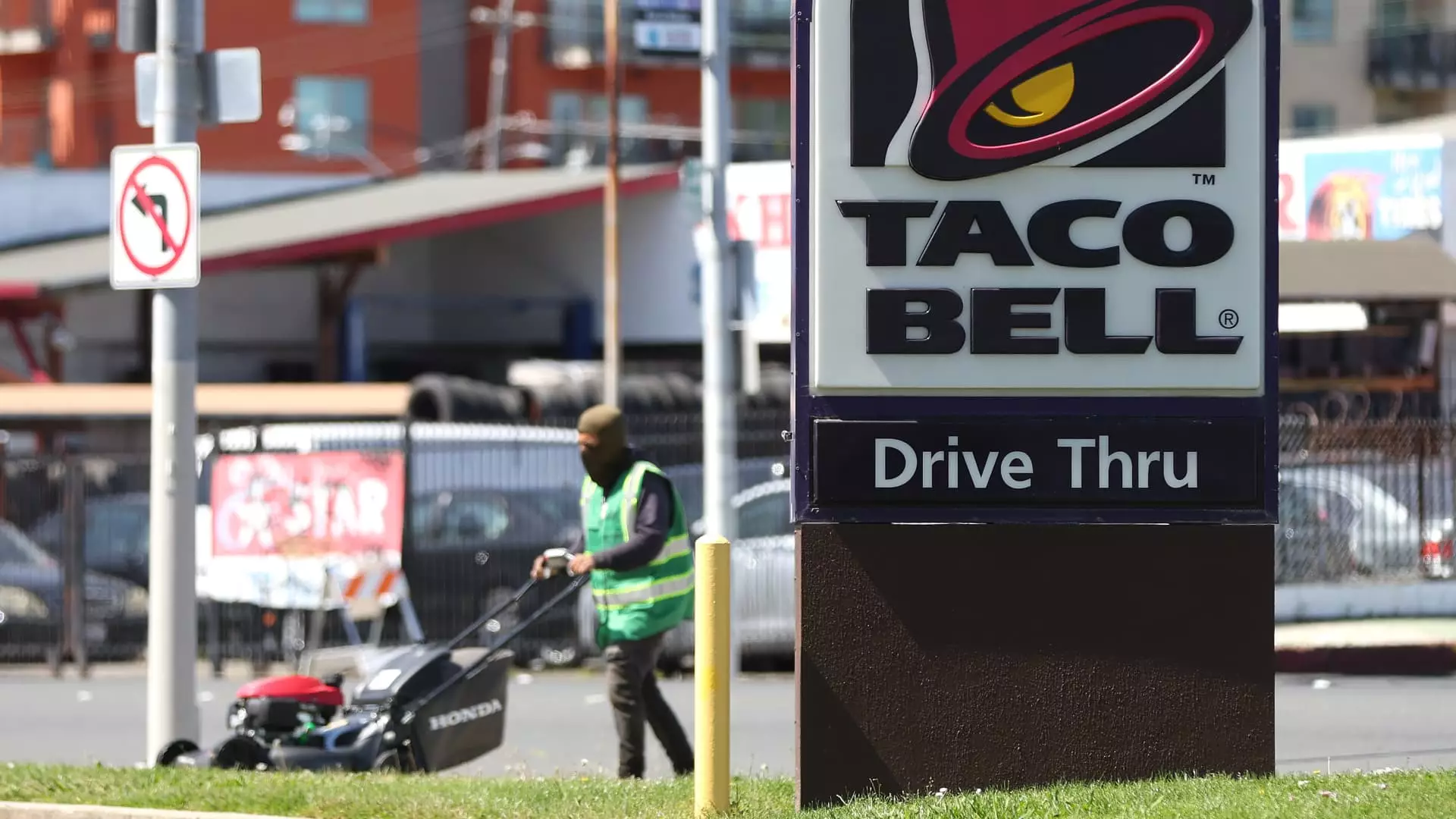Yum Brands recently reported a mixed quarter as both Pizza Hut and KFC reported declining same-store sales. The company’s CEO, David Gibbs, attributed these declines to the impacts of the Middle East conflict and a more cost-conscious consumer base. These factors have presented significant headwinds for same-store sales, making it difficult for Yum Brands to meet Wall Street expectations.
The company reported earnings per share of $1.35 adjusted, slightly higher than the expected $1.33 per share. However, revenue fell short of expectations at $1.76 billion compared to the anticipated $1.8 billion. Yum’s second-quarter net income was reported at $367 million, down from $418 million the previous year. Despite the decline in net income, the company’s earnings per share remained relatively stable after excluding certain items.
Yum Brands faced challenges with declining same-store sales at both Pizza Hut and KFC. KFC’s U.S. restaurants struggled the most, with domestic same-store sales shrinking by 5%. Despite some improvements in China, KFC’s overall international same-store sales fell by 3%. Similarly, Pizza Hut experienced a decline in both domestic and international same-store sales, further impacting Yum Brands’ overall performance.
In contrast to Pizza Hut and KFC, Taco Bell saw a 5% increase in same-store sales during the quarter. The chain’s focus on value and its strong presence in the U.S. market have helped it withstand the challenges faced by other brands within the Yum portfolio. Taco Bell’s ability to attract customers across different income levels has been a key factor in its success, according to CEO David Gibbs.
Expansion of Artificial Intelligence
Yum Brands announced plans to expand the rollout of artificial intelligence technology across Taco Bell drive-thru lanes in hundreds of its U.S. restaurants by the end of the year. This move aims to enhance customer service and drive efficiency within the chain’s operations. By leveraging AI technology, Yum Brands hopes to improve the overall customer experience and boost sales at Taco Bell locations.
Impact of Temporary Closures
Chief Financial Officer Chris Turner confirmed that roughly 200 of Yum’s restaurants are temporarily closed across the Middle East, Malaysia, and Indonesia. While some locations may reopen later this month, there is a risk that certain restaurants could close permanently if the conflict worsens. This uncertainty adds another layer of complexity to Yum Brands’ current challenges in the global market.


Leave a Reply